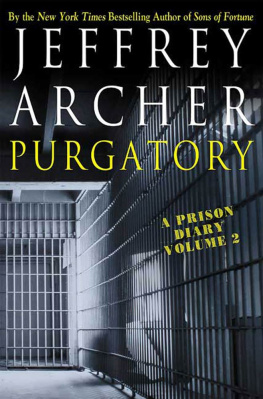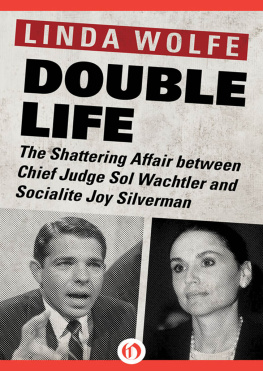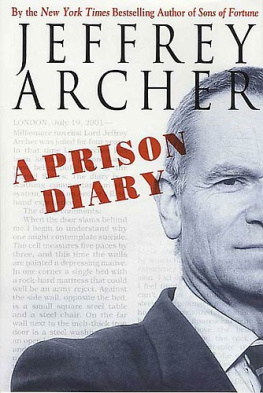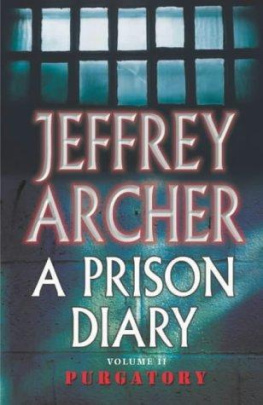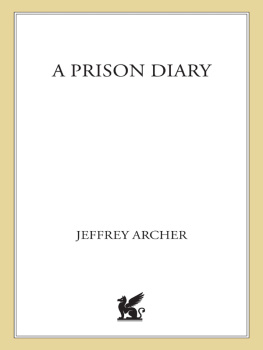After the Madness
A Judges Own Prison Memoir
Sol Wachtler

All rights reserved, including without limitation the right to reproduce this ebook or any portion thereof in any form or by any means, whether electronic or mechanical, now known or hereinafter invented, without the express written permission of the publisher.
Copyright 1997 by Sol Wachtler
ISBN: 978-1-4804-9575-3
This edition published in 2014 by Open Road Integrated Media, Inc.
345 Hudson Street
New York, NY 10014
www.openroadmedia.com

To Those I Love
You, my family and friends, were the only barrier between me and the cold darkness of despair. Without your gift of love, understanding, and forgiveness I could not have survived. So many of you visited me and reached out to me while I was hospitalized, in home confinement, and in prison. You brought your warmth of companionship and encouragement and were steadfast in your friendship, kindness, and affection. I shall be eternally grateful.
There is no man so good, who, were he to submit all his thoughts and actions to the laws, would not deserve hanging ten times in his life.
Montaigne
Do not judge a person until you have been in his positionyou do not understand even yourself until the day of your death.
Hillel
Acknowledgments
Thank you Richard Curtis, my literary agent, for your confidence. And thank you, Harold Evans, publisher of Random House, for suggesting I write this book and for so quickly agreeing to publish it. I am also indebted to Random House and Harold for choosing Jonathan Karp as my editor and I am grateful to Jonathan for his remarkable intellect, diligence, and good judgment.
I thank my classmate Tom Wolfe and my Albany neighbor, William Kennedytwo remarkable writers and dear friends who spent so much of their valuable time instructing and encouraging me to find my voice. And Nelson DeMille, a more recent friend and gifted author, for his helpful advice.
BUTNER PRISON
Butner, North Carolina
Introduction
The facts of my case have been well publicized. I dwell on them in this journal not to excuse my wrongful conduct but to explain how I wound up in prison and how the abuse of drugs, even those legally prescribed, and untreated mental disorder, can destroy.
The decomposition of my life began slowly, almost imperceptibly. It began with my weakness in pursuing an affair with Joy Silverman, a married woman who was the stepdaughter of my wifes uncle. When Joys stepfather died in 1984, I was named trustee of a trust established for her benefit.
It did not take long for our friendship to become an intimate relationship, with all the excitement of clandestine meetings and travel to romantic hideaways. The attention and adoration of this attractive woman, seventeen years my junior, made thismy only affair after thirty-eight years of marital fidelityan excursion of breathless exhilaration.
My relationship with Joy and my ability to function appropriately ended with the onset of a major depression in the summer of 1990.
William Styron, in his book Darkness Visible, describes his depression as a brain storm, literally, a storm in the brain, one that affects every part of your life and being. He was struck by a major depression when he was sixty. I was the same age when I too felt the first manifestations of this illness.
Styron also wrote of the indelible link between depression and preoccupation with serious imaginary illness: Unwilling to accept its own gathering deterioration, the mind announces to its indwelling consciousness that it is the body with its correctable defectsnot the precious and irreplaceable mindthat is going haywire.
The part of my body that I thought was going haywire was the brain itself. Persistent headaches and a weakness on my left side convinced me that I had a brain tumor. This misbelief was fostered by answers given me by doctors to hypothetical questions and my claustrophobic fear and consequent refusal to submit to a diagnostic magnetic imaging process (magnetic resonance imaging, or MRI), which requires the patient to be encased in a tunnel-like enclosure. Had I taken this diagnostic examination the true nature of my malady, an uncomplicated herniated disc, would have been revealed. The tumor that I was certain was growing in my brain was imaginary.
While suffering from this profound depression, and not wanting to bear the stigma of seeing a psychiatrist, I attempted to self-medicate. I was able to convince one doctor to prescribe Tenuate, an amphetaminelike drug that I used to elevate my energy level and thereby mask my depression (I took 1400 of them in a four-month period). And because I could not sleep, I was able to convince another doctor to prescribe a hypnotic called Halcion (I took 280 of them during the same four months). Still another doctor gave me a prescription for Pamelor, an antidepressant. And there were others. All of these drugs taken by themselves have dangerous side effects. Taken together the reaction can be devastating. In my case it contributed to and exacerbated a diagnosed manic-depressive (bipolar) disorder.
At first I thought my breakup with Joy, initiated by me, would be a positive step in my effort to combat depression. I would no longer have to lead a double life and continue to deceive my wife. Thats what I thought. But I missed Joy. Her absence from my life started to take on a new dimension. In my despair, I began thinking of her as someone who could bring me solace. In my hopelessness, she came to symbolize hope. I felt a longingnot for Joy, but for the person whom I imagined Joy to be. I felt that if she would come back to me, I would be whole again.
For seven years I had been the one Joy turned to for advice on how to deal with her own problems and those involving her children. I wanted her to need me again. To accomplish this I embarked on a bizarre campaign of writing outrageous and harassing letters, letters that my mania convinced me would bring Joy back to me.
I went so far as to send a note containing a condom in an envelope addressed to Joys fourteen-year-old daughter. I knew that her daughter would never receive it because I identified the envelope in such a way as to invite Joys opening and intercepting it. As I anticipated, the letter was intercepted and never received by her daughterbut the fact that I did such a thing, calculated to distress Joy, was another of my unpardonable and shameful acts.
My behavior never brought Joy back to me for help. Instead it brought her to the FBI and, ultimately, me to prison and ruin.
Shortly after my arrest on November 7, 1992, I was compelled to have the MRI scan that I had resisted for so long. It revealed UBOs (unidentified bright objects) in the deep right parietal region of my brain, where I thought my brain tumor was located. According to one study, an increased number of these UBOs signal hyperintensities suggestive of abnormal tissue found in bipolar patients.
The aberrational conduct exhibited by me prior to my arrest suggested mental illness, but diagnosis was necessary in order to determine treatment. For this purpose I was referred to Drs. William A. Frosch and Frank T. Miller as the primary examining psychiatrists and to the Payne Whitney Psychiatric Clinic of the New York Hospital-Cornell Medical Center as the place for the examination.
Dr. Frosch, a professor of psychiatry at Cornell University Medical College, was the chairman of the Department of Psychiatry of the Payne Whitney Psychiatric Clinic and is considered one of the nations foremost psychiatrists. Dr. Miller, the primary author of the report concerning my illness, was another psychiatrist of note. As a diplomate of the American Board of Psychiatry and Neurology, he practiced psychiatry under Dr. Frosch at Payne Whitney and was later named chairman of its Department of Affective Disorders.

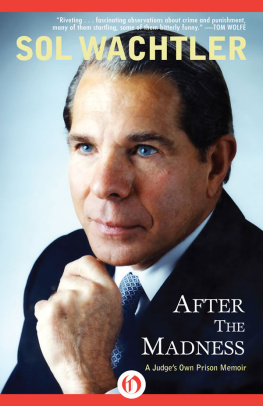

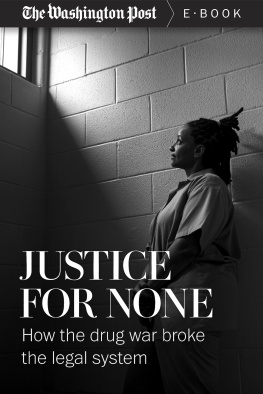
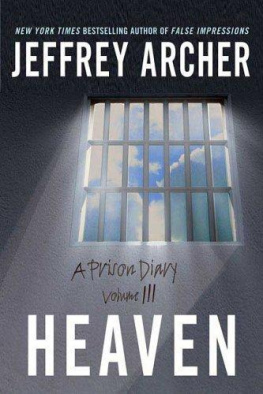
![HMP Belmarsh - A prison diary. [Volume one. Belmarsh: hell]](/uploads/posts/book/212654/thumbs/hmp-belmarsh-a-prison-diary-volume-one.jpg)
